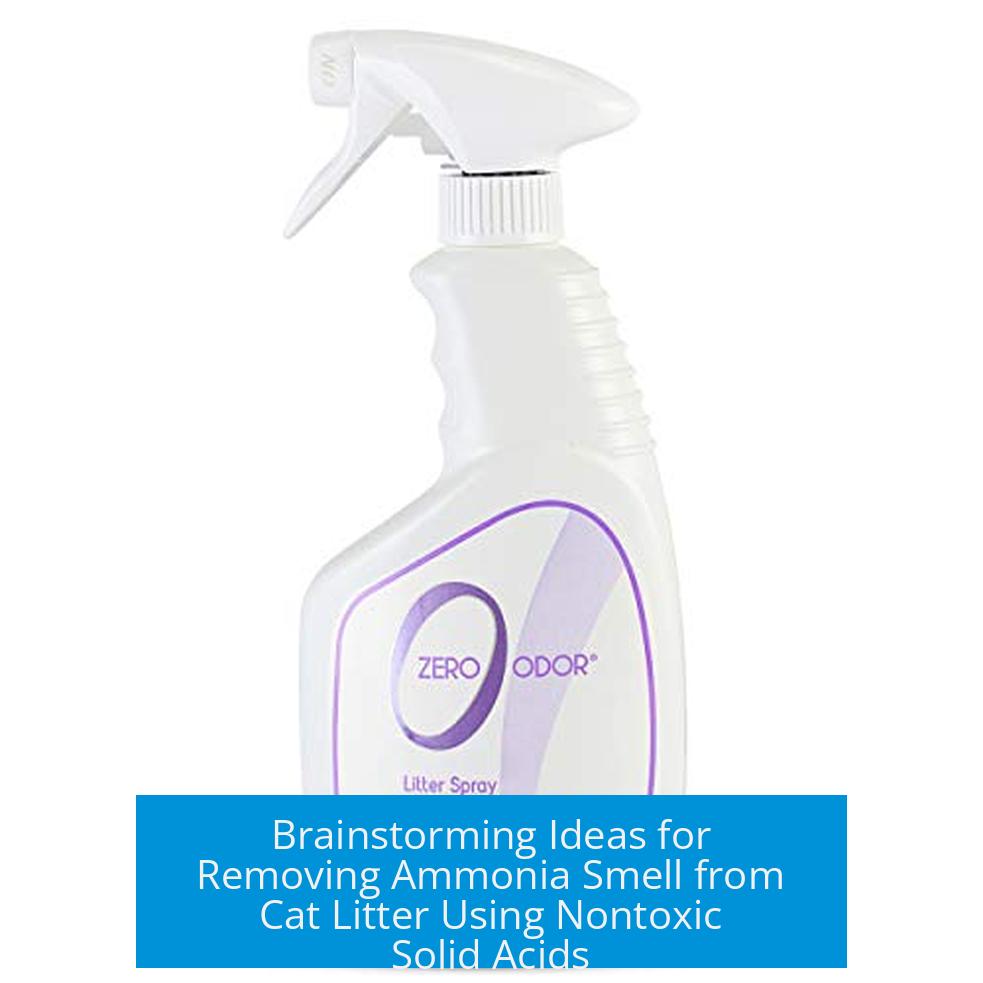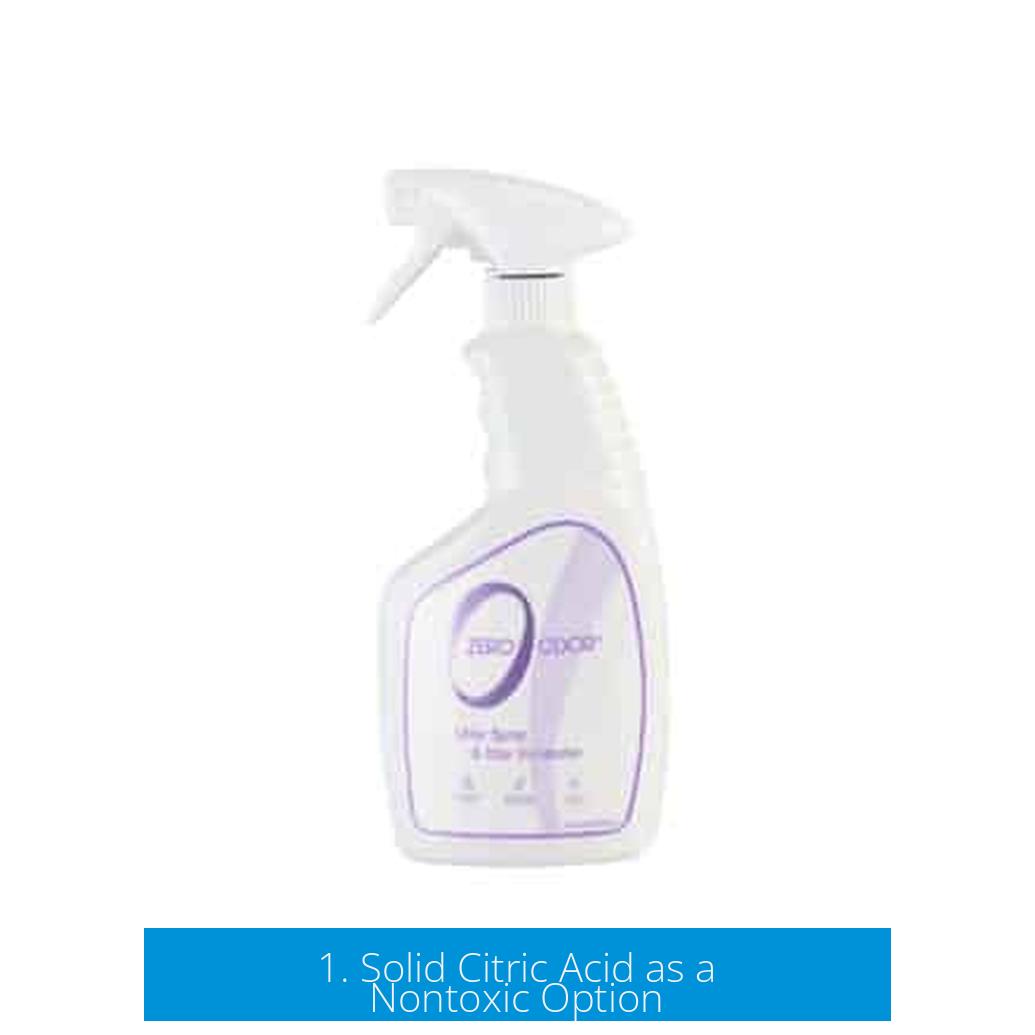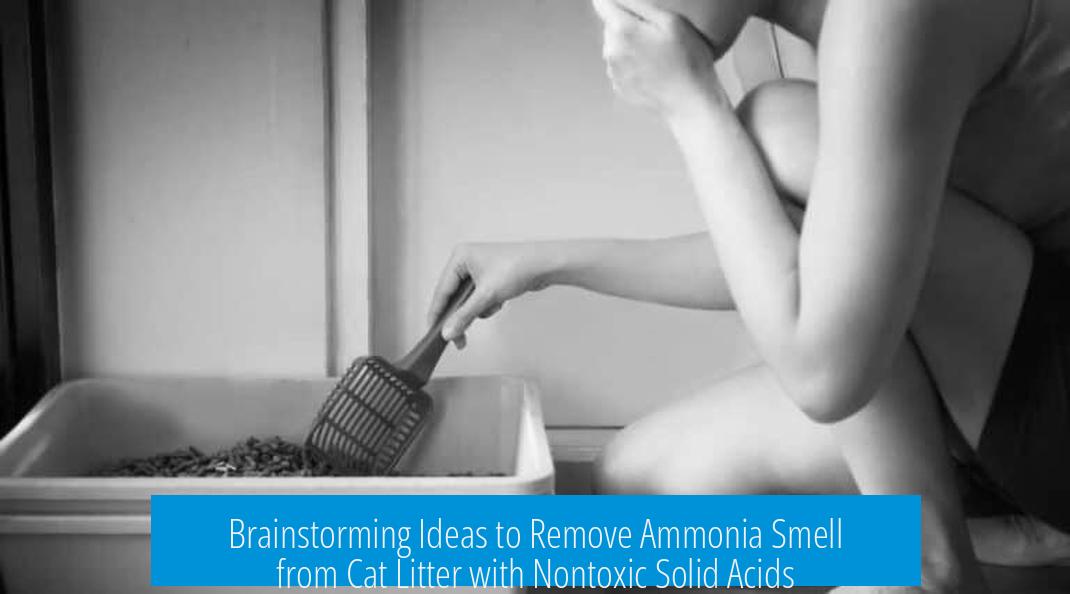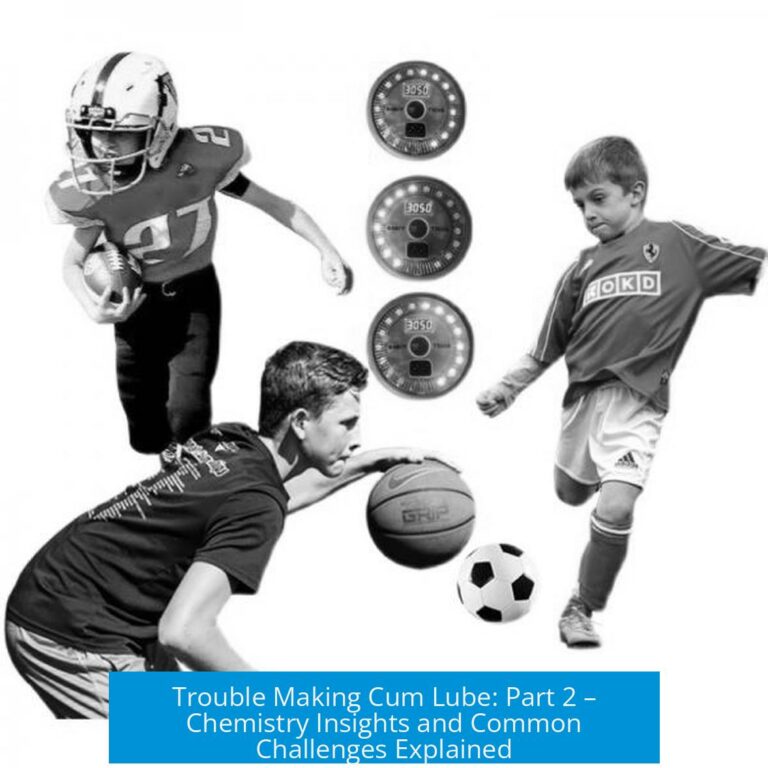Brainstorming Ideas for Removing Ammonia Smell from Cat Litter Using Nontoxic Solid Acids

Removing ammonia odor from cat litter most effectively involves using nontoxic solid acids like citric acid, combined with good litter maintenance, odor absorbers such as zeolite, and complementary materials like activated charcoal. This approach neutralizes ammonia and controls smell without harming pets.
1. Solid Citric Acid as a Nontoxic Option

Citric acid is a weak organic acid found naturally in citrus fruits. It acts as a solid acid that can chemically react with ammonia gas, potentially neutralizing odors.
- Reaction: Citric acid can convert alkaline ammonia (NH3) into less volatile ammonium salts.
- Safety: It is nontoxic and safe for cats in typical environmental exposure.
- Effectiveness: The reaction between solid citric acid and ammonia gas may be limited due to low surface contact and gas diffusion.
Hence, citric acid might help reduce odor partially, but it should be combined with other methods.
2. Use of Zeolite (Clinoptilolite)
Zeolite is a crystalline aluminosilicate mineral with high adsorption capacity for ammonia and odors.
- Clinoptilolite, a common form of zeolite, effectively traps ammonia molecules.
- It is safe and non-toxic, frequently sold as a natural odor absorber for pet environments.
- Adding zeolite to litter or around litter boxes can improve ammonia smell control.
3. Activated Charcoal as an Odor Adsorber
Activated charcoal binds odor molecules through adsorption, including ammonia components.
Due to its porous structure, it is effective in reducing unpleasant smells and is safe near pets.
4. Improving General Litter Box Practices
Good maintenance is essential to limit ammonia buildup:
- Use high-quality cat litter with good absorbency.
- Remove urine and feces daily or every other day.
- Ensure enough litter depth so cats can bury waste properly.
- Regularly clean and replace all litter to avoid residual odors.
Poor maintenance or full litter boxes lead to stronger smells independent of chemical additives.
5. Other Chemical Suggestions and Limitations
Magnesium hydrogen phosphate was mentioned but lacks clear evidence for ammonia odor control in cat litter.
Some consider stronger acidic substances, but these carry toxicity risks and are not recommended for pet environments.
Key Takeaways
- Solid citric acid is a promising, nontoxic acid to neutralize ammonia but likely not fully effective alone.
- Zeolite (clinoptilolite) and activated charcoal efficiently adsorb ammonia and odors safely.
- Good litter box hygiene significantly reduces smell and ammonia generation.
- Avoid harsh or toxic chemicals; prioritize pet safety and natural compounds.
- Combining chemical absorbers with proper cleaning achieves the best odor control.
What makes solid citric acid a candidate for reducing ammonia smell in cat litter?
Solid citric acid can react with ammonia gases. It is nontoxic and safe to use around pets. However, its effectiveness in neutralizing ammonia through gas-solid reaction is uncertain and may vary in practice.
How does clinoptilolite (zeolite) help control ammonia odor in cat litter?
Clinoptilolite is a natural mineral that absorbs odors including ammonia. It can capture gases in its porous structure, reducing smell. It is available in powder form, often from fish supply stores or online.
Are there other nontoxic substances suggested for neutralizing ammonia smell?
Yes, activated charcoal is known for absorbing odors and gases. Magnesium hydrogen phosphate has been suggested but lacks clear evidence of effectiveness in litter odor control.
How important is regular cleaning in managing ammonia smell from cat litter?
Daily or every-other-day removal of waste significantly reduces odor. Keeping the litter box clean and having enough litter volume prevents ammonia buildup and helps keep smells down.
Can acidic compounds fully eliminate ammonia smell in a litter box?
Acidic compounds may neutralize ammonia chemically, but their practical success depends on reacting with the gas. Complete elimination is not guaranteed, especially if the litter is saturated or poorly maintained.
Why might a litter box still smell even after cleaning and disinfection?
The box may hold residual chemicals or waste buildup. Also, if the litter is too full or the cat does not bury waste properly, ammonia and other odors can persist despite cleaning efforts.





Leave a Comment